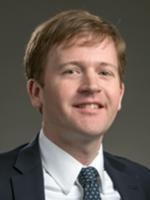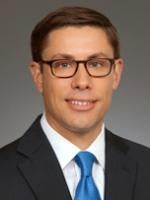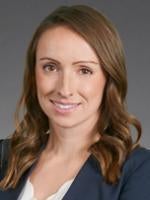Lavish “speaker programs” sponsored by pharmaceutical and medical-device companies may soon be a thing of the past—and not just because of the COVID-19 pandemic.
In a 16 November 2020 Special Fraud Alert (Alert) issued by the Department of Health and Human Services Office of the Inspector General (HHS OIG)—its first since 2014—HHS OIG expressed “significant concern” at the “inherent fraud and abuse risks associated with the offer, payment, solicitation, or receipt of remuneration related to company-sponsored speaker programs.”1 According to HHS OIG, speaker programs, “lucrative speaker deals,” and remuneration paid by companies related to the training of health care professional speakers present ample opportunities to run afoul of the federal Anti-Kickback Statute (AKS).2
The HHS OIG Alert focuses primary on arrangements where pharmaceutical or medical device companies pay health care professionals large fees to speak to other professionals about a particular product or disease state. Styled as events that will educate colleagues in the industry about the use of the sponsor-company’s products—but sometimes held at high-end restaurants or entertainment venues—HHS OIG states that such speaker programs and the accompanying fees paid are often intended to “induce or reward referrals” of the company’s product in violation of the AKS.3
The AKS makes it is a felony to knowingly and willfully offer, pay, solicit, or receive any type of remuneration—in short, anything of value—in return for referring, recommending, or ordering any item or service for which payment may be made in whole or in part under a federal health care program.4 The law applies equally to anyone who either receives or offers such remuneration, a fact the Alert emphasizes repeatedly.
The Alert cites several federal investigations into companies where speakers received fees totaling hundreds of thousands of dollars or where speaker payments were conditioned on the speaker meeting certain sales targets. HHS OIG also singles out events held at entertainment venues or high-end restaurants, the selection of which suggests an inducement both for the health care professional paid to speak and for the attendees.
The Alert provides a series of “suspect characteristics” that may suggest a particular sponsorship arrangement constitutes improper remuneration in exchange for referrals in violation of the AKS, including:
Lack of Substantive Information
-
Speaker programs “where little or no substantive information is actually presented."
Alcohol and Lavish Meals
-
Free alcohol and meals “exceeding modest value” are provided to attendees.
Unsuitable Venues
-
The program takes place “at a location that is not conducive to the exchange of educational information,” such as “restaurants or entertainment or sports venues.”
Unjustifiable Frequency
-
Multiple programs “on the same or substantially the same topic or product, especially in situations involving no recent substantive change in relevant information.”
Repeat Attendees
-
Providers who “attend programs on the same or substantially the same topics more than once."
Attendees Without a Legitimate Business Purpose
-
Friends, significant others, or family members of the speaker; employees of the speaker’s own medical practice; and other people without a “use for the information.”
Nexus to Revenue Generation
-
Speaker selection based on the speaker’s expected revenue generation or influenced by the company’s sales or marketing business units.
Excessive Fees
-
Speakers paid “more than fair market value for the speaking service” or provided compensation that “takes into account the volume or value of past business generated or potential future business generated.”5
In noting the absence of in-person events during the COVID-19 pandemic and the demonstrated ability of heath care companies to educate providers without hosting in-person speaker events, HHS OIG suggests that health care companies should “consider alternative less-risky means” for conveying information to health care professionals.6 Indeed, HHS OIG ominously asserts that the availability of information about drug and device products through means that do not involve remuneration “suggests that at least one purpose of remuneration associated with speaker programs is often to induce or reward referrals.”7 While the Alert does not state that HHS OIG will presumptively view speaker programs as inherently suspicious, it broadcasts an unmistakable shift in the government’s enforcement posture toward increased scrutiny.
The focus on speaker fees as a potential AKS violation is hardly a surprise given recent government enforcement actions against health care companies. The Alert comes on the heels of the 21 October 2020 global resolution with Purdue Pharma LP (Purdue), in which Purdue agreed to plead guilty to, among other charges, knowingly or willfully retaining doctors as paid speakers “specifically to induce them to prescribe and reward them for prescribing Purdue’s drugs,” in violation of the AKS.8 According to the settlement agreement, Purdue made hundreds of thousands of dollars in payments to providers who were among the top sellers of Purdue products, continuing payments in one case even after the provider indicated he may stop prescribing OxyContin if Purdue were to discontinue his speaking engagements with the company.9 The Purdue settlement agreement also notes that the process for selecting speakers was controlled by Purdue’s sales and marketing staff, who were incentivized to increase their assigned doctors’ prescriptions of Purdue products.
The Department of Justice (DOJ) has targeted doctors and pharmaceutical and medical device companies repeatedly for similar violations in recent years. In 2018, for example, DOJ indicted five doctors for prescribing a fentanyl-based painkiller in exchange for fees paid for speaking engagements, which were largely social affairs, including one company-sponsored outing to an adult-entertainment venue.10 In 2019, another company settled a qui tam action involving high-dollar speaker fees paid to providers for events attended by the speakers and their families that featured “expensive dinners and alcohol.”11
The HHS OIG Alert signals that both potential speakers and company sponsors need to be aware of the risks associated with speaker programs, particularly those that are at least ostensibly more geared toward entertainment than education. When assessing how to move forward with such events in a post-COVID-19 world, pharmaceutical and medical device companies should evaluate whether the risk of attracting government scrutiny outweighs the benefit of the speaker program itself. When planning in-person speaker events, companies should be mindful of the potential red-flag factors HHS OIG outlines and select speakers judiciously, without considering the speaker’s history of prescribing or ordering products; emphasize the educational nature of the event, selecting a venue and tailoring content appropriately; and closely document attendance. The constraints placed on the industry by the COVID-19 pandemic have provided the perfect opportunity to reassess the speaker program model altogether—and to plan future events accordingly.
Footnotes
1 FRAUD ALERT: SPEAKER PROGRAMS 2, 6 (16 Nov. 2020) [hereinafter HHS OIG Alert].
2 42 U.S.C. § 1320a-7b(b)(1)–(2).
3 Id.
4 Id.
5 HHS OIG Alert at 5–6.
6 Id. at 7; see 42 U.S.C. § 1320a-7b.
7 HHS OIG Alert at 3.
8 Letter from Rachael A. Honig et al. to Patrick Fitzgerald et al. (20 Oct. 2020).
9 Id. According to the Settlement Agreement, Purdue paid the highest-volume U.S.-based prescriber of OxyContin more than US$160,000 during a five-year period; paid another high-volume prescriber US$475,000 during a four-year period to deliver speeches, despite Purdue’s acknowledging he was not a good presenter; and paid an additional US$110,000 to a doctor who threatened to stop prescribing Purdue’s products if he did not receive a speaking arrangement.
10 Id. Press Release, Dep’t of Just., Five Manhattan Doctors Indicted For Accepting Bribes And Kickbacks From A Pharmaceutical Company In Exchange For Prescribing Powerful Fentanyl Narcotic (16 Mar. 2018).
11 Stipulation and Order of Settlement and Release Between the United States and Relator, United States ex rel. Arnstein v. Teva Pharm. USA, Inc., No. 1:13-cv-03702-CM-OTW (S.D.N.Y., 14 Jan. 2020), ECF No. 278; see Memorandum Decision and Order Denying Defendant’s Motion for Summary Judgment, United States ex rel. Arnstein v. Teva Pharm. USA, Inc., No. 1:13-cv-03702-CM-OTW (S.D.N.Y., 27 Feb. 2019), ECF No. 162.






 />i
/>i
